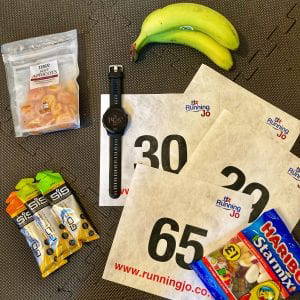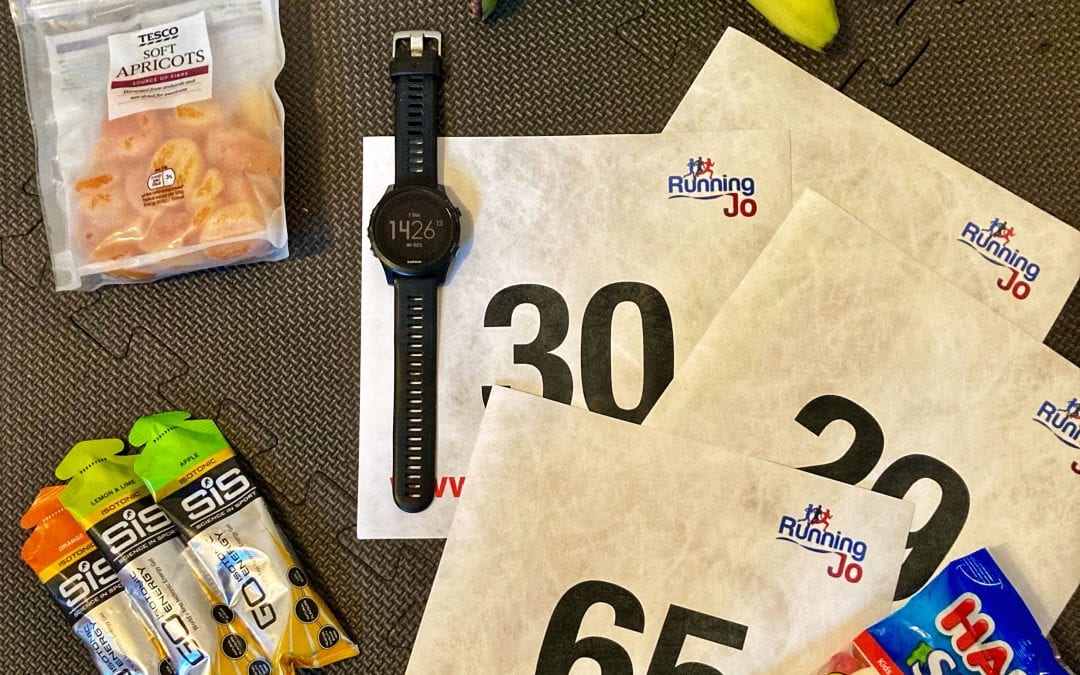Why do you need mid-race nutrition?
Mid-race nutrition is essential to deliver your best performance. As you run your body uses carbohydrate, known as glycogen, as fuel to create energy for muscles. Glycogen is stored in the muscles and liver. The harder or longer you run, the more glycogen you use.
Most people can only store sufficient glycogen to fuel 90 minutes of mid-intensity exercise. After this your glycogen stores will become depleted. This is called energy deficit. Energy deficit means you have to slow down or potentially stop.
Hence, for races over 90 minutes you will need mid-race nutrition to replenish glycogen stores.
Benefits versus costs
Studies have shown that nutrition is the second main reason why runners fail to finish ultra events. Mid-race nutrition provides essential additional energy which hugely boosts performance.
However, it can also cause gastro-intestinal issues which might adversely affect performance too. It’s not uncommon to experience nausea, vomiting, cramps or diarrhoea. Digestion re-directs vital blood supply away from the muscles to your stomach and intestines.
These are the reasons why its not considered worth taking mid-race nutrition on any event lasting less than 90 minutes. For most runners, half marathons tend to be the longest distance to run before you need additional nutrition.
The negative effects of mid-race nutrition are unpleasant and disruptive. The good news is that nutrition is very “trainable”. Hence lots of practice is key.
Key points to consider
After the first 60 minutes of exercise you require a minimum of 30g carbohydrate and ideally between 60-90g per every 60 minutes of exercise that follows. A common error is to not consume enough nutrition at the right time for the intensity of exercise.
Digestion and absorption take approx. 15-20 minutes subject to nutrition choice and individual physiology.
With all strategies start your race nutrition at approx. 45 minutes to allow for initial absorption to start and avoid energy deficit. One of the common errors is to start your mid-race nutrition too late into the race. Then you are in energy deficit which is hard to reverse.
Drinking fluids throughout is also essential to help aid digestion and absorption.
How to practice mid-race nutrition
- Start practising several months before your target race if possible
- Use your long runs to practice all aspects of nutrition including what and when
- Start with small quantities and gradually increase the amount you consume as your body adapts
- If you struggle with the sensation of having food in your stomach while you run then practice eating small quantities before your shorter runs to help you adapt
- Try different types of nutrition to decide which you like best and what works best for you
- Don’t be put off if you find it hard to do or unpleasant at first. Race nutrition takes practice
Nutrition strategy
There are several different nutrition strategies you can adopt.
- Traditional strategy – energy gels
- Little and Often – Jelly Bean strategy
- Real food options
How should you choose?
- Can you actually physically eat it – chew and swallow while you breathe heavily and run?
- Do you like it?
- Can you carry it or get it on the course?
- Does it cause you gastro-intestinal issues? E.g. vomiting, severe cramps and diarrhoea

